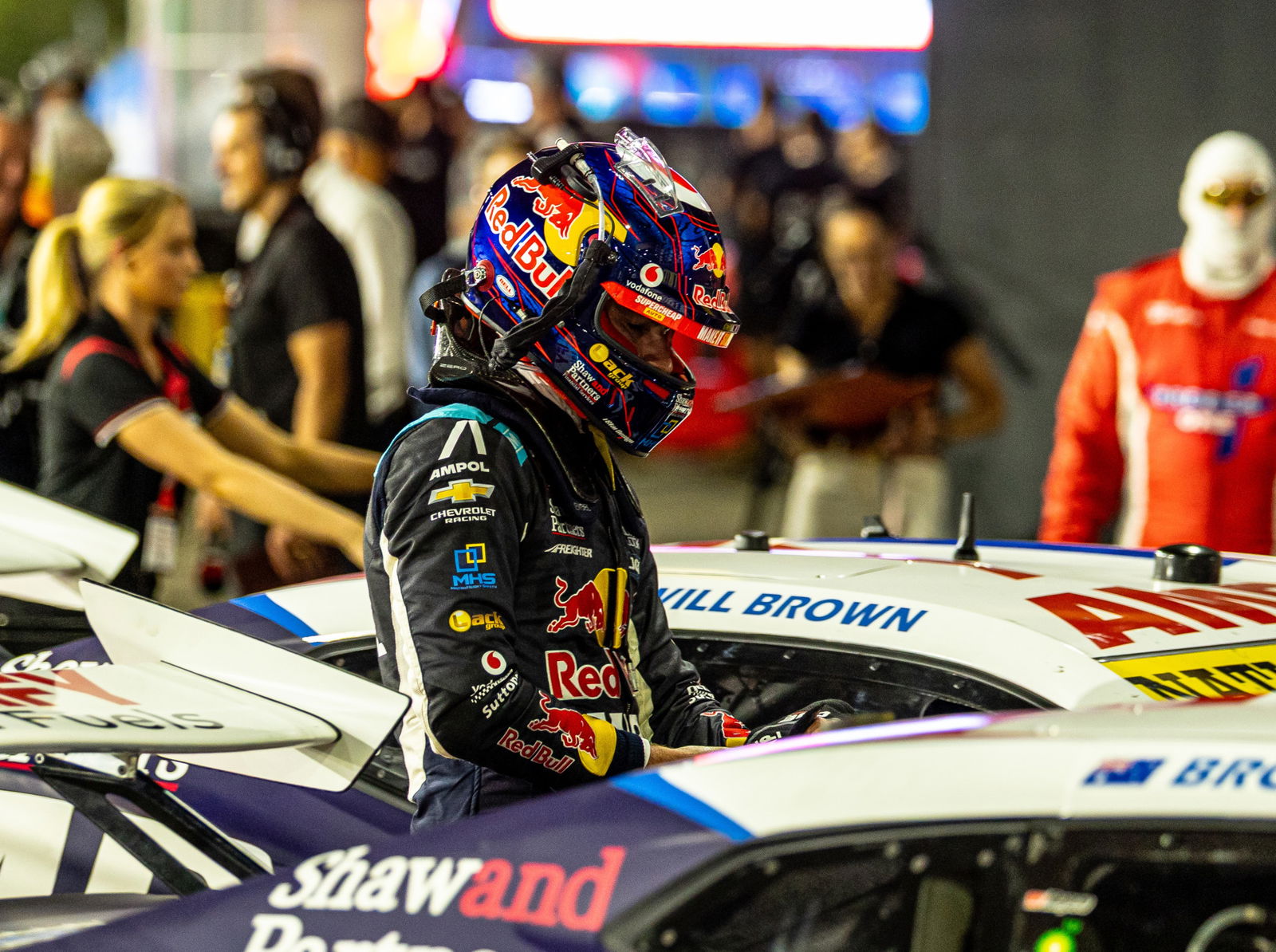

As odd as it may sound, I mean that in complete support of Triple Eight’s young star. Criticising Feeney for being upset with losing a race just doesn’t sit right with me.
Last Saturday night we saw one of the all-time finishes to a Supercars race.
Feeney, fast but out-classed by Cam Waters on outright speed, found himself in the lead thanks to a mix of some fortunate double stacking by T8 that slowed Waters in the first round of stops, and then a decision from Tickford to run Waters long in the second stint.
He was always going to face an uphill battle against the pure pace of the Monster Mustang, though, and it all came to a head a few laps from home when Waters made a lunge for the lead at Turn 4.
A small inside lock from Waters saw the Ford tip the Chevrolet into a spin. It could have been game over for Feeney on the spot, only for Waters to execute a clever redress and keep the party going.
Feeney led again but had to contend with overheated rear tyres and the unchanged fact that Waters was simply faster.
And Waters prevailed after a wild side-drafting battle to the finish line. The margin just three-thousandths of a second.
Tickford was elated and Triple Eight was flat. Feeney in particular struggled to hide his frustration in the post-race interview and on the podium.
His reaction was a talking point in the paddock on Sunday. And out there on the internet. That was an instant classic of a race. How dare he not revel in merely being involved.
What absolute nonsense.
Too often we lament the lack of personality we see from the drivers. We talk constantly about the toll that it takes on the celebrity status of these athletes.
And yet when one expresses some real emotion it raises eyebrows.
Feeney had every right to be dejected after that race. In fact, anything else would have sent the wrong message.
He had led the race until the final centimetres. He had come out of the last corner fully expecting to add to his tally of victories, only to see that Ford edge ahead at the critical moment.
He would have been questioning just how Waters had cleared Brown so easily on his charge back through the field. Could his own teammate had done more to help his cause?
He would have been wondering what would have been had Waters not hit him at Turn 4. Could he have held him off just long enough to take some life out of his tyres?
He would have been considering if Waters should be penalised for that touch on the way into the final corner and whether it was worth making that case to race control.
Perhaps he was ruing that he himself could have done more to avoid Waters getting the side draft. Perhaps positioning the car more central so he had room to break to the right. Or following Waters to the left once the Mustang had inflicted its damage to the air flow and broken free for the sprint to the line.
And every single one of those thoughts would have cut like a knife.
The worst possible outcome would have been a Feeney that seemingly didn’t care that he had lost the race. If the guys out on track don’t care, how on earth do you convince those in the stands, or watching on TV, to be invested in the outcome?
The fact that Feeney did show that emotion out in the open, and not smile politely in public and vent his frustrations behind closed doors, should be celebrated.
We want to see how much it hurts. It’s critical if we want to showcase that this sport matters.
Hopefully we see a lot more of these moments, not just from Feeney but Waters, Brown, Chaz Mostert, Brodie Kostecki and whoever else ends up fighting for wins this year.
Nobody wants to be a sore loser. But there’s nothing wrong with being an unhappy loser.




















Discussion about this post